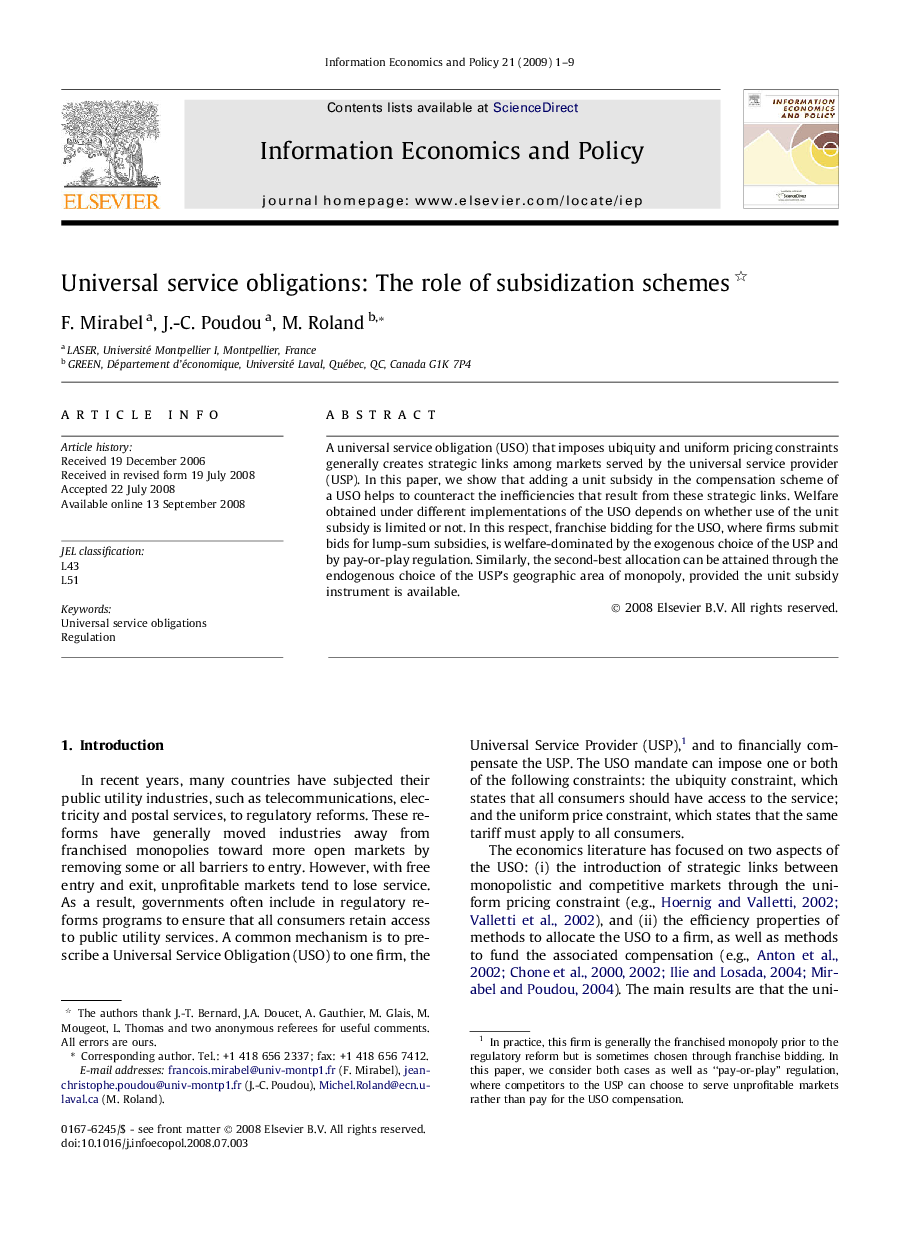| Article ID | Journal | Published Year | Pages | File Type |
|---|---|---|---|---|
| 5075911 | Information Economics and Policy | 2009 | 9 Pages |
Abstract
A universal service obligation (USO) that imposes ubiquity and uniform pricing constraints generally creates strategic links among markets served by the universal service provider (USP). In this paper, we show that adding a unit subsidy in the compensation scheme of a USO helps to counteract the inefficiencies that result from these strategic links. Welfare obtained under different implementations of the USO depends on whether use of the unit subsidy is limited or not. In this respect, franchise bidding for the USO, where firms submit bids for lump-sum subsidies, is welfare-dominated by the exogenous choice of the USP and by pay-or-play regulation. Similarly, the second-best allocation can be attained through the endogenous choice of the USP's geographic area of monopoly, provided the unit subsidy instrument is available.
Related Topics
Social Sciences and Humanities
Business, Management and Accounting
Management of Technology and Innovation
Authors
F. Mirabel, J.-C. Poudou, M. Roland,
